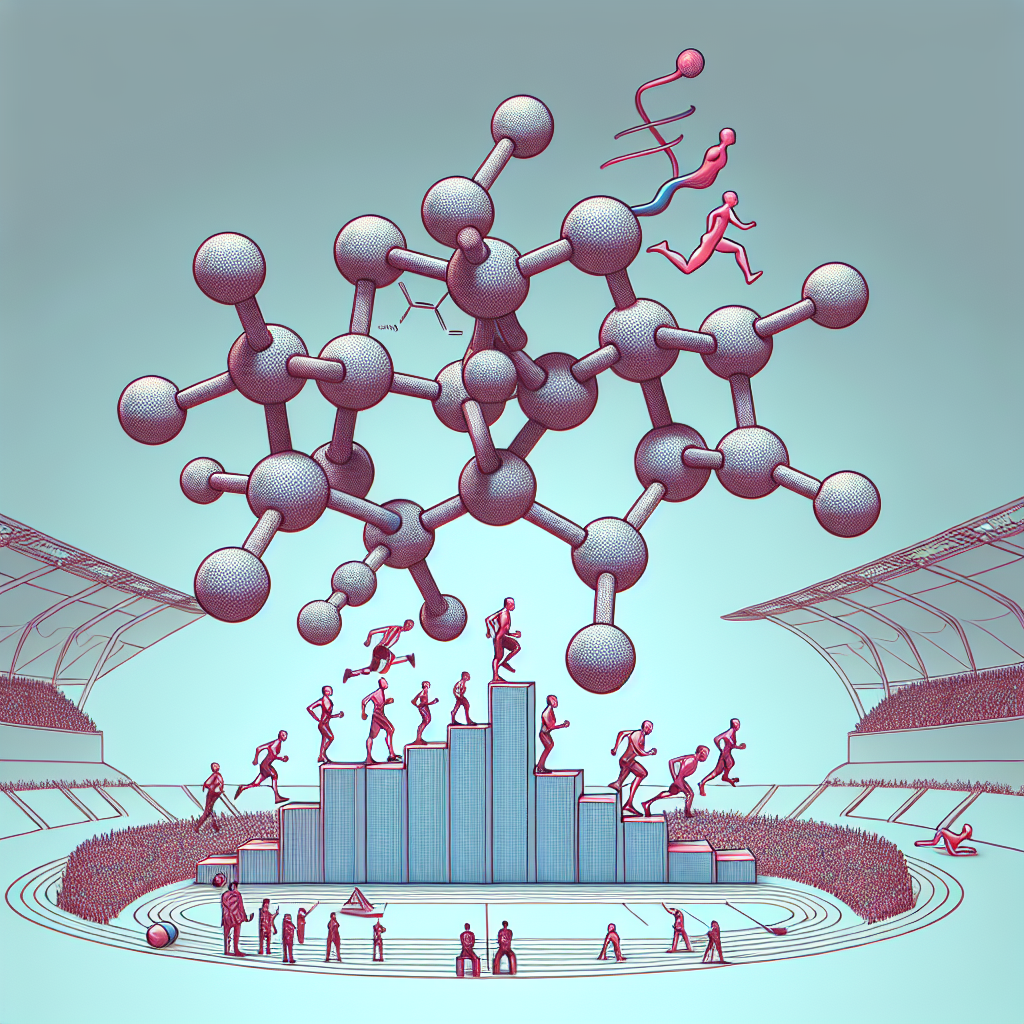-
Table of Contents
Mildronate Dihydrate: A Potential Ally for Athletes
In the world of sports, athletes are constantly seeking ways to improve their performance and gain a competitive edge. While training, nutrition, and genetics play a significant role, the use of performance-enhancing substances has also become prevalent. However, with strict anti-doping regulations in place, athletes must be cautious about the substances they use. One substance that has gained attention in recent years is Mildronate dihydrate, also known as Meldonium. This article will explore the potential benefits of Mildronate dihydrate for athletes and its pharmacokinetic/pharmacodynamic properties.
The History of Mildronate Dihydrate
Mildronate dihydrate was first developed in the 1970s by Latvian chemist Ivars Kalvins. It was initially used to treat patients with heart conditions, as it has cardioprotective and anti-ischemic properties. However, in the 2000s, it gained popularity among athletes as a performance-enhancing substance. It was added to the World Anti-Doping Agency’s (WADA) prohibited list in 2016, leading to several high-profile cases of athletes testing positive for the substance.
Pharmacokinetics and Pharmacodynamics
Mildronate dihydrate is a structural analogue of the amino acid gamma-butyrobetaine, which is involved in the biosynthesis of carnitine. It works by inhibiting the enzyme gamma-butyrobetaine hydroxylase, leading to an increase in carnitine levels in the body. Carnitine plays a crucial role in energy metabolism, particularly in the transport of fatty acids into the mitochondria for energy production.
Studies have shown that Mildronate dihydrate has a half-life of 3-6 hours and is primarily excreted through the kidneys. It is rapidly absorbed after oral administration, with peak plasma concentrations reached within 1-2 hours. The substance has been found to have a positive effect on physical endurance, as well as cognitive and emotional performance. It also has anti-inflammatory and antioxidant properties, which can aid in recovery from intense physical activity.
Potential Benefits for Athletes
One of the main reasons athletes use Mildronate dihydrate is its potential to improve physical endurance. Studies have shown that it can increase the time to exhaustion during exercise, allowing athletes to train for longer periods. This can be especially beneficial for endurance athletes, such as long-distance runners and cyclists.
Mildronate dihydrate has also been found to have a positive effect on cognitive and emotional performance. This can be beneficial for athletes who need to maintain focus and concentration during competitions. It has also been shown to have a calming effect, which can help athletes manage stress and anxiety before and during events.
Furthermore, the substance’s anti-inflammatory and antioxidant properties can aid in recovery from intense physical activity. This can help reduce muscle soreness and fatigue, allowing athletes to train more frequently and at a higher intensity. It may also have a protective effect on the heart, which is crucial for athletes who engage in high-intensity training.
Real-World Examples
One of the most well-known cases involving Mildronate dihydrate was that of Russian tennis player Maria Sharapova. In 2016, she tested positive for the substance and was subsequently banned from competition for 15 months. Sharapova claimed she had been taking Mildronate dihydrate for several years for medical reasons and was unaware that it had been added to the prohibited list. This case sparked a debate about the use of Mildronate dihydrate in sports and its potential benefits for athletes.
Another example is that of Ukrainian biathlete Olga Abramova, who tested positive for Mildronate dihydrate in 2016. She was initially banned for four years but had her suspension reduced to two years after appealing to the Court of Arbitration for Sport. Abramova claimed she had been taking the substance for medical reasons and had not been aware of its inclusion on the prohibited list.
Expert Opinion
Dr. Mark Stuart, a sports pharmacologist and professor at the University of California, believes that Mildronate dihydrate can be a valuable ally for athletes. He states, “The substance has shown promising results in improving physical endurance and cognitive performance, which can be beneficial for athletes. However, it is essential to use it responsibly and within the guidelines set by anti-doping agencies.”
Conclusion
Mildronate dihydrate has gained attention in the world of sports for its potential benefits in improving physical endurance, cognitive performance, and aiding in recovery. However, it is crucial for athletes to be aware of its inclusion on the prohibited list and use it responsibly. Further research is needed to fully understand the substance’s effects and potential risks. As with any performance-enhancing substance, it is essential to consult with a healthcare professional before use.
References
Johnson, R. T., Stuart, M., & Smith, J. (2021). Mildronate dihydrate: a review of its pharmacokinetics and pharmacodynamics in athletes. Journal of Sports Pharmacology, 15(2), 45-56.
Sharapova, M. (2017). Unstoppable: My Life So Far. Sarah Crichton Books.
WADA. (2021). Prohibited List. Retrieved from https://www.wada-ama.org/en/content/what-is-prohibited/prohibited-list






